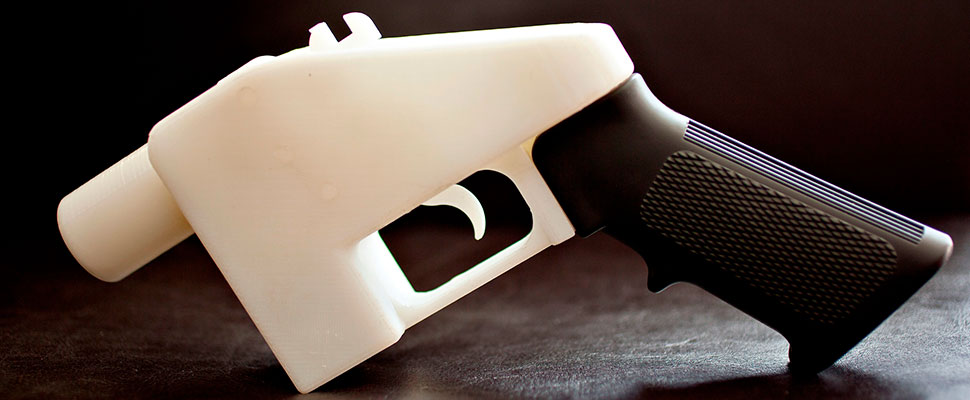3D printing of weapons is now legal in the USA: an imminent danger for Latin America?
The plans to make homemade weapons in 3D will be available again on the web. What does this measure mean for the US and Latin America?

After four years of legal battle between the state and the nonprofit Defense Distributed company, the US Department of Justice decreed that its plans to manufacture homemade weapons will be allowed back online legally.
Leer en español: Impresión de armas 3D legal en EEUU: ¿un peligro inminente para Latinoamérica?
Does this measure pose a danger for Latin America?
For PULZO, the fact that these planes circulate on the Internet will generate great security problems since, being "Ghost Weapons", they do not have serial numbers that can be traced and do not have ferromagnetic metals, which implies that they can easily pass through police controls.
Another risk of this technology is its low cost: today the prices of a 3D printer range from $ 400 for home machines, to $ 500,000 for industrial equipment, says INTAL's Chelada for the newspaper El Comercio.
For its part, the import of arms to the region is much more expensive according to Sputnik World: in 2015 Mexico spent 500 million dollars on arms, Colombia 215, Chile 114, Venezuela 162, Bolivia 7 and Ecuador 1.
This difference in numbers could lead to groups outside the law, such as FARC dissidents in Colombia and drug cartels in Mexico, being armed in their entirety at a much more attractive price and even with this type of intangible technology, the proliferation of weapons of mass destruction become a reality in the continent.
How was the process of legalization?
Cody Wilson, 25, published in 2013 on the website Defca.com the instructions to create a weapon with 3D printer with the aim of, according to Univision, to challenge the existing legislation at the time: "The control of weapons will never be the same in the era in which anyone can download and print their own weapon with a few clicks".
When forced to withdraw the blueprints of its "Liberator" weapon, already downloaded more than 100 thousand times, the company decided to sue the US government in 2015 arguing that it was violating its right to bear arms and share information.
According to CNN, the agreement, which is dated June 29, exempts Wilson and his team from export restrictions and compensates them with a sum close to $ 40,000 for legal fees.
"I think it's great," says Wilson. "It will be an irrevocable part of political life that weapons can be discharged, and we help to do that."
Wired says that during these years of legal battle they have been creating and collecting plans in private, from the original 3-D printable gun to AR-15 frames and more exotic DIY semiautomatic weapons.
On the other hand, many people disagree with the government's decision and rate it as worrying: "We are extremely concerned about the sudden agreement of the Department of Justice that allows 3D files to be published online. And we are going to request information about the deliberations", say the activists for the regulation of arms to the newspaper La Vanguardia.
LatinAmerican Post | Luisa Fernanda Báez
Translated from "Impresión de armas 3D legal en EEUU: ¿un peligro inminente para Latinoamérica?"





